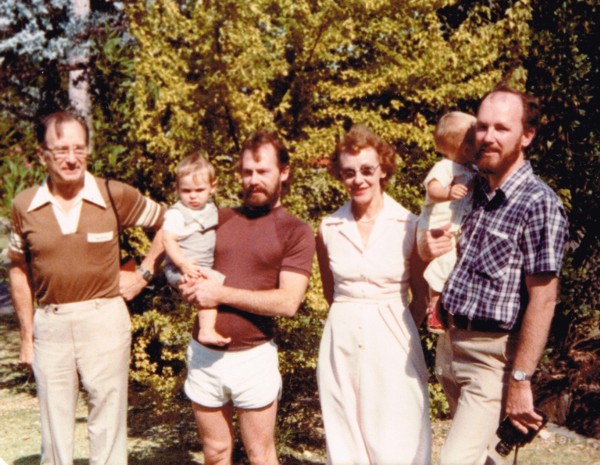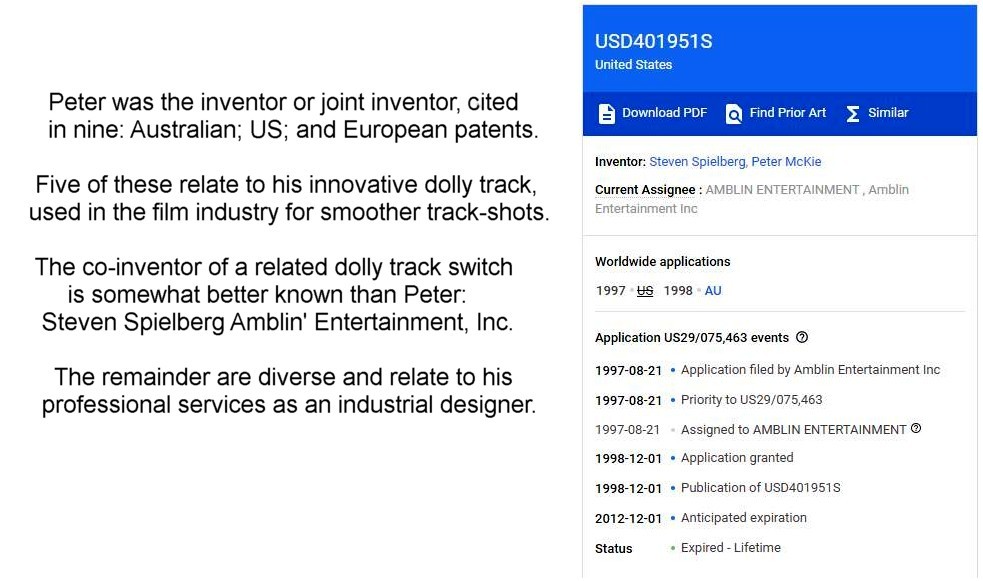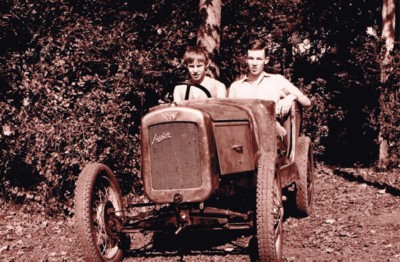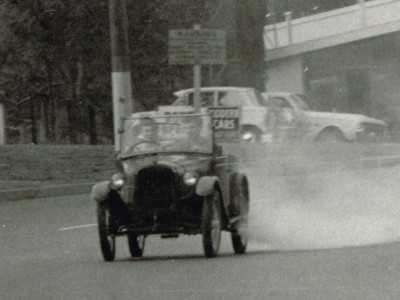My brother, Peter, is dead.
One of his body's cells turned rogue and multiplied, bypassing his body's defences. The tumour grew and began to spread to other organs. Radiation stabilised the tumour's growth but by then he was too weak for chemo-therapy, which might have stemmed the spreading cells.
He was 'made comfortable' thanks to a poppy grown in Tasmania, and thus his unique intelligence faded away when his brain ceased to function on Sunday, 22nd May 2022.
I visited him in the hospital before he died. Over the past decade we had seldom spoken. Yet he now told me that he often visited my website. I had suspected this because from time to time he would send e-mail messages, critical of things I had said. That was about the only way we kept in touch since the death of his daughter Kate (Catherine). That poppy again.
I suppose that one of the reasons for not talking very often was that there were few things that we disagreed about. So, our last conversation, which amongst other things, encompassed the inevitability of death for all of us, was uncontroversial, even comfortable. We were brought-up to sort out our metaphysical leanings for ourselves. Both of us came to believe, like our parents, that there could be no continued 'life' after death. So, a dead body has no particular value, except, perhaps, as a memento for the still-living, our descendants and maybe historians to come.
Yet, as I have repeatedly asserted on this website, while we are alive, we all, continually change the present - and therefore, the future. As a result, after death we continue to exist in another way: through the affects of those changes, that we made, in the fabric of what is now - and thus: what will be.
Not only do we persist through our children and grandchildren, who but for us and the specific circumstances of their conception would not exist, but also through our works and influence on others.

Our father, Stephen; Peter and son Daniel; our mother, Vera; me and daughter Emily (circa 1980)
Yet, it's as much about those things from which we abstained, despite the opportunity, and our impact on the present through those decisions. For example: "I won't hire that person;" or: "Not tonight, Josephine."
Thus, Peter always had a significant impact on the 'now' - and so - on the future.
In particular, he was an industrial designer by profession and had an instinctive grasp of how things worked and how they might be improved. He was a consummate creator of things, and ideas about how to do things, that will be used, and built upon by others, into the distant future.
Amongst other things he was heavily involved in the film industry, in particular providing special effects for movies and television commercials. One of the many names that appear in the credits after any major motion picture.

Our Shared Youth
Since Peter's death, I've thought about him a lot. As children and young adults, we shared a bedroom and had a sometimes strained relationship but we could work together harmoniously on many projects of a practical nature, like restoring his first car, an ancient Austin Seven.

Elsewhere I've recalled growing up in the years before television or social media when, as children, we were encouraged to be more 'hands-on' than similar aged children in today's Australia:
|
From The McKie Family
Stephen McKie's sons were encouraged to use tools and their brains as he had been by his father. It wasn't so we could become inventors or mechanics or even engineers. It was so we could experience the satisfaction of making things; of understanding how things work; and discovering something new. The joy of creation. That was why, one very early Christmas, Santa Clause left a tent in the room with the tree and in it was a big black wooden tool box with RSM written on the top and real tools inside - not plastic toys. Anyway, we didn't have much plastic then, except Bakelite and Perspex. I had those tools well into adulthood. The Tool Box eventually became our combined Meccano box when Peter and I had stopped fighting over such things... Cars were another thing we needed to know about. On paper it looks like a miracle that Peter and I were not injured in some way. There were a lot of dangerous things around. But the thing was, we knew they were very dangerous so we were extra cautious. We grew up with cautionary tales. Like the one when a fellow at CA Parsons research attempted to make some nitro-glycerine but unsure if he had succeeded dropped his test-tube-full out of the second storey window. He blew-out all the downstairs windows and terminated his employment. We were invited to consider what he should have done instead, like putting a drop on an anvil and remotely dropping a suspended weight on it. It was assumed that, at some point, we might face this dilemma. So, we never attempted to set-off suspected explosives, or a home-made rocket, without a long wick or wire around the corner of the house. On more than one occasion this turned out to be very good practice. Similar stories related to poisons (most of the chemicals in the house) and potential carcinogens (like any chemical with a benzene ring), high voltages, unstable loads and structures and shonky car supports (jacks, stands and so on). I was recently telling someone of the cautionary experiment when Stephen put a little ether on a saucer on our kitchen floor to show it spontaneously catch fire - careful the flames are hard to see. This was because we had a gas refrigerator in our kitchen then. As soon as the vapour from the saucer rose high enough, the gas pilot light caused the fame to flash back to the saucer. To this day I consider nearby flames when using solvents and was amused years later when a friend's petrol-soaked overalls blew-up his parent's laundry. As a result, we were generally more cautious than most when it came to these things. And so one generation sets the scene for the next. But there are some traditions that do get broken. Looking back over this partial list, I wonder why I've not followed directly in my father's footsteps. Sure, I've always wanted to know how things work and have enjoyed making my version of some of them. After all they are made by other human beings and must be comprehensible, even, as Pooh would say: 'to a bear of very little brain'. But my brother Peter has been more like our father and perhaps his grandfather. He's always designed and built and invented. Peter has half a dozen patents in the US and has successfully defended at least one patent there... |
Some decades after we were both adults, we worked together converting a small petrol engine to drive an electrical generator on his farm, near Jindabyne, and I experienced the same satisfaction of mutual creativity we had enjoyed as teenagers.
There are many other references to Peter on my website like this one:
From:
Cars, Radios, TV and other PastimesAs kids we, like many of my friends, were encouraged to make things and try things out. Peter liked to build forts and tree houses; dig giant holes; and play with old compressors and other dangerous motorised devices, like model aircraft engines and lawnmowers; until his car came along... When he was around fifteen years old Peter bought an Austin Seven; in pieces; for £10; plus, some more pounds, to a final total something less than £70 'on the road'. Actually, there were eventually parts for about three Austin Sevens. We assembled an engine, chassis and drive chain, it had a fabric universal joint, and he put a seat in place on the chassis so he could drive it. And drive he did; around and around the house; to the detriment of the sandstone side steps, and the back lawn and terracing. By the time he was old enough to have his licence he had restored the Austin Seven sufficiently to get it registered. It had, on occasion, been taken out on clandestine test runs, up and down Pennant Hills Road and around adjoining streets; but not very surreptitiously; as it initially had a defective muffler, when fitted at all, and until Peter re-ringed it, it blew clouds of smoke.
At first the battery was the most expensive individual component in the entire car, in due course surpassed by a new windscreen. The electric self-starter, to replace hand cranking, was an add-on that sat over the flywheel near the passenger's feet... My father taught me, and later my brother, to drive although Peter didn't require much teaching for obvious reasons. My father had taught Australians, Canadians, South Africans and Poles, amongst others, to fly fighters and fighter bombers in the Empire Air Training Scheme in Canada, in the latter part of the war (WW2). That's how we ended up in Australia. As a result, we learnt to drive like fighter pilots. We were shown how to get into and out of skids. Independently we discovered 180s and 360s. Peter even showed a hapless hitch-hiker his roll-over technique. He subsequently denied this; claiming instead, and I quote, that he demonstrated: 'his clean off the suspension on the curbing technique'. The hitch-hiker may not have appreciated the subtleties. |
Much earlier there was the night of the unlit highway:
Also, from:
Cars, Radios, TV and other PastimesWe both liked homemade rockets and explosives; but our early efforts, before the benefits of high school chemistry, generally resulted in the rockets exploding and the explosives fizzing. You can read more about this in the article Cracker Night (click here). Commercial firecrackers and gunpowder were generally more successful; although home-made nitrogen triiodide was always easy, and zinc dust and sulphur, sifted together, make a pretty good rocket fuel. We also had some fun with large gas filled balloons; and various means of firing marbles and other projectiles. Fortunately, we had 'the sheep paddock', forming part of the property, for such experiments. We only set fire to it once or twice when the grass was particularly long and dry. There was never any suggestion from parents that we should not be wiring up electric motors or installing flood lighting to repair cars under. We both had a healthy respect for high voltages and seldom got a 'shock'. We were never injured by one of our experiments (by other things occasionally). The parental policy was that we were warned and asked what safety precautions we were taking. After all, we had seen first-hand what happens when a length of copper wire falls across the 33KV local distribution grid and shorts it to the street lighting; talk about loud; and dark that night! The thirty-three thousand volt explosionThis resulted from a balloon experiment. Peter had saved up to buy a very large rubber balloon which he had filled with town (producer) gas from an outlet the laundry using a pump. This gas still had a considerable hydrogen component, along with carbon monoxide, unlike today's heavier natural gas. But having no suitable string he decided to use the copper wire from an old radio transformer that I had previously broken open. I had quite a number of these and every now and then took one apart as a source of wire of various gauges; particularly for our homemade telephone system to Colin next door; for radio aerials; for winding coils for buzzers; rewinding my burnt-out Meccano motor and so on. Copper wire of a gauge thick enough to restrain a large balloon comes from the low voltage windings on such a transformer. It's quite heavy and the balloon hadn't risen a lot higher than the trees, maybe 60 feet (20m) or so, when it wouldn't go higher. That's when I discovered my little brother repeating Benjamin Franklin's famous lightening experiment; holding the end of a 60-foot lightening-conductor in the back garden. Several people have been killed trying to repeat this experiment. I claim to protect him from being fried; he claimed out of sibling maliciousness; I reached above his head and rapidly bending and straightening the wire (as one does) broke it. The balloon then rose ponderously; higher and higher; at the same time being carried by a light breeze in the direction of Pennant Hills Road and the railway cutting. The trailing wire cleared the house; then hovered over the cars and trucks on the main road. But continuing to drift westwards there was no chance that it would clear the high voltage power lines running between the road and the railway. A spectacular two second display of sputtering sparks and sheets of blue green flame ensued, as the dangling copper wire first struck, then fell across the high voltage lines; was vaporised; and became plasma. The noise was remarkable too; very loud. Then everything electrical stopped. The local grid protection breakers kicked-in and the power went off for a minute or two. Then just as quickly everything returned to normal. Householders called out by the noise returned indoors to continue whatever they had been doing. All except our father, who was working from home. He circled the house and finding us acting nonchalantly; in other words, suspiciously; demanded to know: 'what have you two done this time!' Why immediately assume it was us? Remarkably he was then more concerned about possible subsequent safety issues: remnants of wire dangling from power-lines; or the ongoing path of a balloon trailing copper wire. But everything had gone; the balloon exploded and the wire vaporised! I don't recall any punishment at all. That night all the mercury arc street lights on the main road were off. The 33kV had been shorted down to the adjacent street wiring and the fuses protecting every lighting ballast in that section had blown. Innocent little Peter asked the team that came to replace them what might have caused it? One bloke said: 'could've been a tree branch or lightening...' Peter said: 'what are you doing with the broken ones - can I have one' The bloke said: 'Go for it!' So, we took several bulbs and at least one ballast. So, that's how for many years later, we had a brilliant bluish street light high on the side of our house (we just replaced the fuse); enabling us to work on our cars in the garden after dark. *** Those 33kV wires are still there the same as ever - but the streetlights have changed. |
Now my world has changed again, in a much more profound way.
***
For more photographs (including Dan and Emily a bit older than in the photo above) Click Here...


